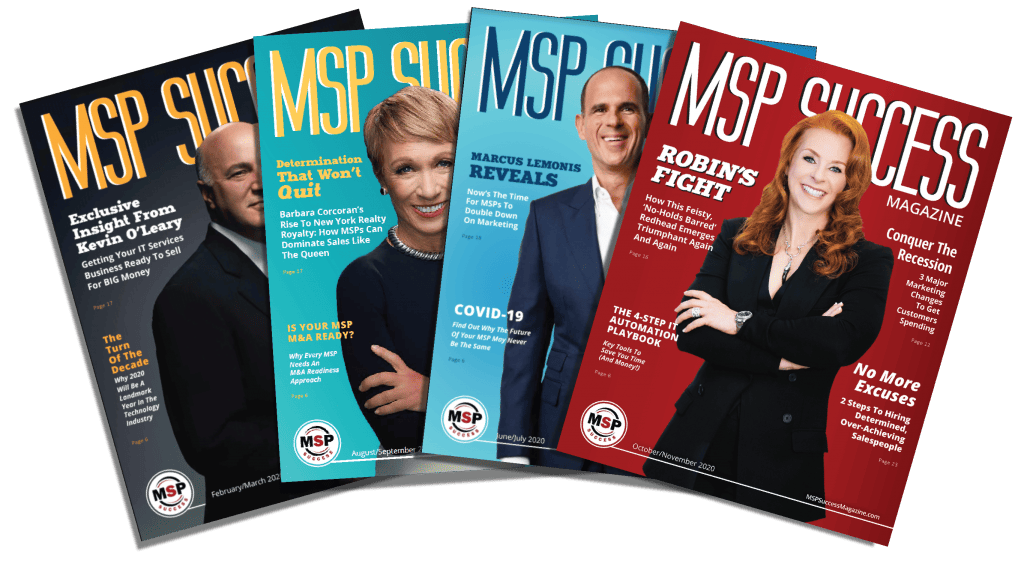“Anytime you get a group of business owners together, whether it is industry-specific or not, it’s always a benefit.”
That’s the belief of MSP business owner Stanley Louissaint, a longtime member of The ASCII Group, a 40-year-old independent IT community with more than 1,300 members across North America.
Louissaint, principal and founder of Watchung, New Jersey-based Fluid Designs, is not alone in the value receives from a peer group. Engaging in a peer group can be a transformative experience for MSPs. Peer groups provide the support and accountability that can help you grow your business and your leadership skills. Louissaint and others offer some tips for getting the most out of the experience.

A Support System—And A Mirror
Peer groups come in various types and formations. They might be locally organized informal groups, or chapters of national or even international organizations. They can be general or industry specific, free or paid. The best ones provide a unique platform for MSP owners and leaders to share experiences, challenges, and strategies.
Many MSPs seek out peer groups when they reach a plateau or struggle in their business.
Mario Zaki, CEO of Mazteck IT, an MSP in Mahwah, New Jersey, found immediate benefits from the 90-day weekly accountability group that came from joining TMT’s Rapid Implementation Workshop, and later his accountability group as part of the Producers Club membership tier. “I attended my weekly accountability group, and that’s where I learned how to really market my company, and to level up,” Zaki says.
Jim Harryman, founder and CEO of Kinetic Technology Group in Dallas, turned to MSP-Ignite for connections and to get more involved in the MSP community. He also wanted to improve various facets of his business. “We had exhausted the typical things, and this helped me focus on the various areas from finance to sales and marketing and operations,” he says.

Support systems naturally develop from these groups, Louissaint says. “You understand what they’re going through. They understand what you’re going through. And hopefully, what happens in the peer group is that everyone helps each other elevate.”
Tommy Thornton, CEO of Automates, an MSP in the San Diego area, says his TMT Producers Club accountability group “holds me accountable and helped me experience exponential growth in a short amount of time. Having this group to fall back on and ask them questions delivers answers I wouldn’t otherwise know. It has completely shifted my mindset. I learn every single week and use it to prop up my momentum even when I fail. I have failures every single day. But that peer accountability group saying, ‘Keep going, you’re doing good,’ helped me keep my momentum.”
Give A Lot to Get A Lot
Preparedness and contribution are critical to ensuring peer groups are effective, according to Gary Pica, founder of TruMethods, a training, software, and peer group community, which was acquired by Kaseya. “We start with teaching new members how to be good peer members. Give before you get, be the most prepared,” he advises. “If everyone does that, then everyone gets more out of the time they spend together,” says Pica, who prior to TruMethods held leadership roles in two MSPs.

The accountability continues as members have group projects and are expected to report on their business-improvement homework. “Sometimes we’ll let ourselves down, but when you build this relationship with your peers, you don’t want to let them down,” Pica says.
So, whether it’s a fee-based or a no-cost group, expect to invest money and time. Harryman says participation can be time-consuming and sometimes involves travel, but the benefits far outweigh the costs. He says MSP-Ignite significantly improved his company’s operations by helping identify and track key performance indicators (KPIs). “And since then we’ve all identified other metrics that people within the industry haven’t really thought of,” he adds.
The learnings can be significant, so much so that Harryman began paying for members of his leadership to join peer groups. By involving leaders from different areas of his company, Harryman ensured that valuable information wasn’t lost in translation and that his team could directly benefit from the insights of their peers.
“It gives them ideas to bring back to me instead of me shoveling stuff to them all the time. So, it’s built a more reciprocal staffing leadership environment,” he says.
Prepare to Get Personal
Peer groups are not just about business growth; they also offer opportunities for personal development. Louissaint, who runs an ASCII Spark peer group, believes in sharing both business and personal goals with the group. “Most owners’ business is their main source of income. So, I think it is very helpful to share what are your personal goals as it relates to [the business], maybe funding your kids’ college education, buying a second home, or whatever it may be.”
To get the most out of a peer group, it’s essential to be open and willing to contribute, says Louissaint. “We are in an industry of people who don’t like to share for whatever reason. But vulnerability is part of that, and it has to happen. You just can’t be a fly on the wall.” He stresses that sharing your challenges allows others to provide meaningful help and insight.
Harryman shares a similar view. He notes that relationships within the peer group evolve over time, allowing for greater transparency and support. “When I first started, my finances were a mess. Our operations weren’t too terrible, but to have people outside of me and my accountant knowing that was very uncomfortable,” he says. “If you can’t get past that, you’re probably not going to make it in a peer group.”
That said, he adds, “As the relationships grow and friendships strengthen, the opportunity to share more about your personal life, challenges, struggles, wins, and successes do come out.”
What’s more, Pica says being part of a peer group can help you overcome self-limiting beliefs and raise your expectations. “Being part of something bigger than just you is what gives us passion and enthusiasm.”
Having experienced the benefits for himself, Zaki eventually took the leadership role in his accountability group, and thus more responsibility for helping others “level up.”
Changing The Game For Good
For MSP owners and leaders, joining a peer group can be a game-changer. It’s a place where you can share your challenges, gain insights, and grow both personally and professionally. As Harryman aptly puts it, “We may have superpowers, but we’re not superheroes.” The collective wisdom and support of a peer group can help you navigate the complexities of running an MSP, ensuring you’re never alone on your journey to success.














